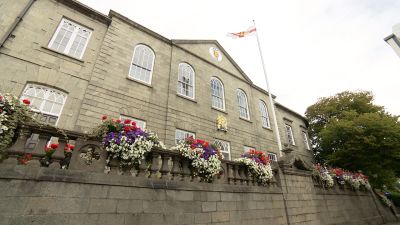Explainer
How does a vote of no confidence work?

Guernsey's top political committee - Policy and Resources - is coming under increasing pressure after its attempt to introduce a Goods and Services Tax was rejected for the third time.
Conversations are ongoing among the island's politicians as to whether a motion of no confidence might be lodged against the committee after its president Deputy Peter Ferbrache indicated it would seek an early election in order to break the political impasse.
Members of the P&R committee are meeting on Tuesday morning to discuss its next steps.
What is a motion of no confidence?
In Channel Islands politics, a motion of no confidence can be called for by a group of States Members who believe a government minister or committee is not capable of competently doing its job.
In this instance, P&R's repeated failure to introduce GST has led to deputies publicly questioning whether its members are the right people to lead the island.
How does a vote of no confidence work?
To call for a vote of no confidence in Guernsey, seven States members have written to the committee asking its members to resign voluntarily within five business days.
In the case of the funding debate, this is unlikely to happen as P&R president, Deputy Peter Ferbrache, says a general election is the best solution so the public can decide how best to "take the island forward".
If the committee refuses to stand down, the same seven politicians can write to Guernsey's Bailiff, Sir Richard McMahon - who presides over the States - explaining why they're lodging a motion of no confidence and asking for it to be brought before the States.
This will then be debated in the assembly "as soon as reasonably practicable".
What happens next?
If the majority of deputies vote in favour of the motion, all members of the committee, including the president, have to resign immediately.
The States will then have to vote for the members of a new committee and its president to fulfil the roles until the next general election.
Has it happened before?
Yes - in January 2017, a motion of no confidence was brought against the Education Committee over changes to the Grammar School system on the island.
At the time, the island had recently voted to discontinue the 11+ exams which pupils had to pass to enrol at a grammar school.
There were hopes this change would lead to schools being more inclusive.
However, three of the five members of the education committee voted against the change, prompting a motion of no confidence as some politicians didn't believe they could carry out the decision.
Nonetheless, the committee survived the motion 22-13 in favour of it continuing in its role.
Want to find out more about the stories making the headlines? Don't miss Channelcast - the Channel Islands current affairs podcast brought to you by ITV News: